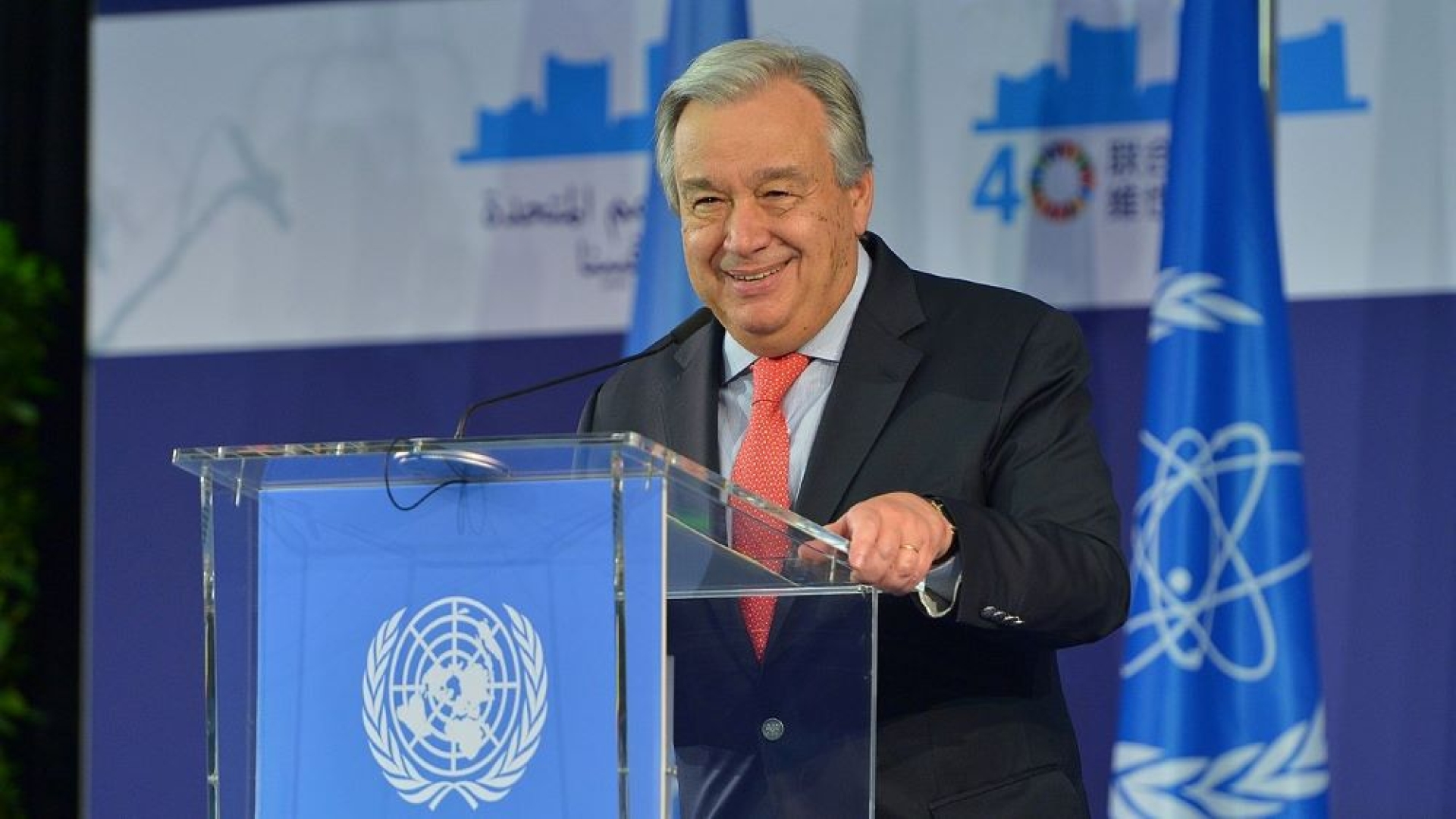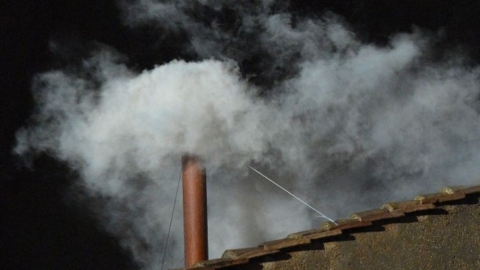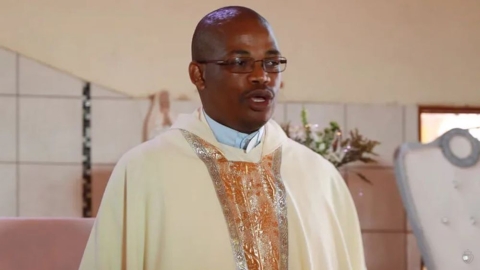Civil Unions Promoted by Francis and the Silence of the CDF

On October 21, 2020, a documentary film entitled Francesco received, in the Vatican gardens, the Kinéo Prize for the Movie for Humanity which rewards a work with social and humanitarian dimensions. Its director, Evgeny Afineevsky had previously directed a comedy, Oy Vey! My son is Gay!, telling the story of an American Jewish family learning to accept homosexuality from a son.
In Francesco, we can see the extract from a 2019 interview the Pope gave to Mexican journalist Valentina Alazraki, wherein the Pope declared himself in favor of laws governing civil unions of homosexuals: “What we must create, is a law on civil unions. This way they will be legally covered. I defended this [in 2010, in Argentina].”
Two Italian men living “as a couple,” Andrea Rubera and Dario Di Gregorio also express themselves in the documentary in order to salute Pope Francis’ “pastoral” approach: they claim that he encouraged them to raise their children their parish church surroundings, which has been very beneficial for these children, according to one of the two men.
The reactions were quick. As early as October 21, United Nations Secretary-General António Guterres, in an interview with the Associated Press, said: “This is a clear demonstration of a fundamental principle, which is the principle of non-discrimination. And one of the things that has been very clear in the United Nations doctrine on this subject, is that non-discrimination is also relevant in matters of sexual orientation, so of course this matter of the Pope is extremely welcome from our point of view.”
Fr. James Martin, SJ, known as one of the most active propagandists of the acceptance of homosexuality by the Church, declared on October 27 to the American channel CNN: “The bishops who are numerous in various countries are violently oppose to civil unions, they will have to rethink their positions.”
On the other hand, the bishop of Providence, Rhode Island (United States), Mgr. Thomas Tobin, underlined the confusion created by the pope’s words, in a message of the same day: “Popes John Paul II and Benedict XVI, in a straightforward teaching, said that civil unions between people of the same sex were bad and that Catholics should oppose them. Pope Francis, in a film, said that civil unions between people of the same sex are useful and should be encouraged.”
On LifeSiteNews, Auxiliary Bishop of Chur, Mgr. Marian Eleganti, also criticized Francis’s words: “the papal interviews have become inflationary…instead of teaching the faith of the Church, namely what has been and is to be believed everywhere, always, and by everyone (Vincent de Lérins), they give us personal views that are neither indisputable nor infallible.” And he concludes, “the Church cannot encourage ways of life sanctioned by civil law that contradict her own catechism.”
The Secretary of State Tries to Reframe
Faced with the controversy the pope’s remarks raised at the international level, the Secretary of State sent an explanatory note to the apostolic nuncios to be transmitted to bishops around the world. Admittedly this note recalls that during the legalization of homosexual “marriage” in Argentina, in 2010, Cardinal Bergoglio had affirmed that “it is an inconsistency to speak of homosexual ‘marriage,’” but that he nevertheless spoke of the right of these people to have legal cover: “What we need to create is a law on civil unions.”
Strangely, this note fails to recall the 2003 document published under John Paul II, emanating from the Congregation for the Doctrine of the Faith, then chaired by Cardinal Joseph Ratzinger, the future Benedict XVI. This Roman document entitled Considerations regarding proposals to give legal recognition of unions between homosexual persons, concludes with these very clear statements: “The Church teaches that respect for homosexual persons cannot lead in any way to approval of homosexual behavior or to legal recognition of homosexual unions… Legal recognition of homosexual unions or placing them on the same level as marriage would mean not only the approval of deviant behavior, with the consequence of making it a model in present-day society, but would also obscure basic values which belong to the common inheritance of humanity.” [No. 11]
In No. 10 of the document, it is stated: “If it is true that all Catholics are obliged to oppose the legal recognition of homosexual unions, Catholic politicians are obliged to do so in a particular way, in keeping with their responsibility as politicians.” As a result, “the Catholic law-maker has a moral duty to express his opposition clearly and publicly and to vote against” same-sex unions. “To vote in favor of a law so harmful to the common good is gravely immoral,” it concluded bluntly.
So in 2019, Pope Francis reaffirms what Cardinal Bergoglio said in 2010, the opposite of a document from the Congregation for the Doctrine of the Faith, published under the authority of John Paul II and supervised by Cardinal Ratzinger, who became Benedict XVI.
Doctrinal Chaos
Therefore it is not for the Secretariat of State to intervene with a “true-false reframing,” true diplomatically (for the form), false doctrinally (on the substance). Indeed, it is the Congregation for the Doctrine of the Faith that must take up the matter.
On October 24 in the Nuova Bussola Quotidiana [The Daily Compass], Luisella Scrosati stated: “We simply ask the Congregation to do its duty: Article 48 of the Apostolic Constitution Pastor Bonus gives it as a specific task ‘to promote and safeguard the doctrine on faith and morals in the whole Catholic world.’” In order to achieve its goal, it [the CDF] must “actively work to ensure that faith and customs are not prejudiced by errors which are disseminated in any way,” striving especially “to ensure that there is an adequate refutation of the errors and dangerous doctrines which are prevalent among the Christian people.”
The Italian journalist draws the appropriate conclusions: “The error of an eventual acceptance by the Church of the legitimization of civil unions was propagated by the words of the Pope himself. Did we not get it right? No problem: let the Congregation write it down in black and white! Because [Francis’s] statement: “What we must create, is a law on civil unions. This way they [homosexuals] will be legally covered,” opposes the Considerations regarding proposals to give legal recognition of unions between homosexual persons that the Congregation for the Doctrine of the Faith itself published in 2003.”
Appropriately, Luisella Scrosati adds another question to ask the Roman Congregation. Since the documentary takes up “the pope's phone call to Andrea Rubera and Dario Di Gregorio, in which he encouraged the homosexual couple to overcome prejudices and bring their children - which they had obviously had through a surrogate mother, or by gestation for others, according to the Newspeak - to attend the parish, [in this context] the deduction is clear: the Pope asks for the legal recognition of a right to a family for homosexual couples, a right which must also include the possibility of ‘having children.’ And therefore silence on the right of children to live with the mother who bore them.”
Basically, “the confusion is total: we have a pope who, during an interview (and therefore not as a pope), makes an unequivocal statement diametrically opposed to what was approved by one of his predecessors, and the skill of the film’s editing goes so far as to make it clear that they approve the right for homosexual couples to have children, even if it is through the use of a surrogate mother.”
This is why the collaborator of the Nuova Bussola Quotidiana concludes energetically: “We will send a petition by registered mail to the above-mentioned Congregation, with some specific questions, and we will let the readers know about any answers. We will ask for confirmation of the positions of the Considerations of 2003…, of the condemnation of surrogate motherhood, present in Donum Vita [Instruction of the Congregation for the Doctrine of the Faith on “respect for human life and the dignity of procreation,” February 22, 1987. Editor’s note], as well as the teaching on homosexuality summarized in numbers 2357-2359 of the Catechism of the Catholic Church.”
The “Case-By-Case” Erosion of Morals
Also in the Nuova Bussola Quotidiana, Stefano Fontana underlines, on November 4, how much the pope’s remarks on homosexual civil unions are close to what Amoris laetitia proposed for the communion of “remarried” divorcees: without calling into question the Catholic doctrine on marriage, it was a question of eroding it on a case-by-case basis, under the pretext of “merciful pastoral care.”
The Italian scholar rigorously analyzes this attitude: “If the cohabitation pact between homosexuals is unjust, there is no circumstance that can make it fair and subject it to legal regulation, as the Pope maintains. This point is fundamental for Catholic moral theology. Through the “case-by-case” route, we deny the possibility of recognizing the homosexual relationship as an objectively immoral situation, independent of circumstances, and we affirm that the circumstances can provide exceptions, that is to say, turn an unjust action into a just action.…It is, as we know, the change brought about by Amoris laetitia that, precisely for this reason, revolutionized Catholic moral theology. For remarried divorcees, too, it has been said that it is not possible to know the objective situation and that it must be examined on a case-by-case basis with the famous “discernment” [pastoral]. We are at the same level.”
On October 22, Aldo Maria Valli expressed on his blog the general feeling of the Catholic faithful: “A son of the Church, the baptized, even if he knows that certain papal positions do not bind him, frankly feels helpless in front of this constant support of the successor of Peter to the dominant thought and mentality, before his desire to please the world, to welcome the ideas of the world and to receive applause from them.… What seems to be close to the heart of Peter’s successor is the applause of the world, the favor of the mainstream progressive press, of secular intellectuals. It is the dismantling of a legacy of wisdom and faith accumulated over the centuries. It is the deconstruction and disarticulation of everything (doctrine, the papacy itself) by painting as “rigid” what is simply Catholic, and by justifying all the follies in the world.”
With the words of the Pope on homosexual civil unions, an awareness of the gravity of the crisis in the Church is manifested among many lay people, because in this affair, as recognized by the Italian site Messa in latino, on October 25 : “It is not only theology that comes into play, but also logic, so we can all risk talking about it.”
“For example: saying that doctrine does not change, and being in favor of civil unions, is like saying that we are supporters of Inter [of Milan], but that we support Juventus [of Turin]. … More seriously, this means that we must consider doctrine and concrete attitudes in the social, cultural, and political realms as independent variables, as parallel universes which never meet. On closer inspection, this is the founding postulate of Amoris laetitia, and the fact of noting this confirms that the documentary does indeed represent the thoughts of the Pope. In the face of all this, it seems to us that Catholics of good will can no longer adopt the ostrich policy: forcing themselves not to see, not to know, not to understand.”
(Sources : cath.ch/J.Smits/FSSPX.Actualités/Life Site News/A.M. Valli/Messa in latino/NBQ – trad. à partir de benoitetmoi/DICI n°402 – FSSPX.Actualités)
Illustration 1 : IAEA Imagebank, CC BY 2.0, via Wikimedia Commons
Illustration 2 : Flickr / Jim Forest (CC BY-NC-ND 2.0)





